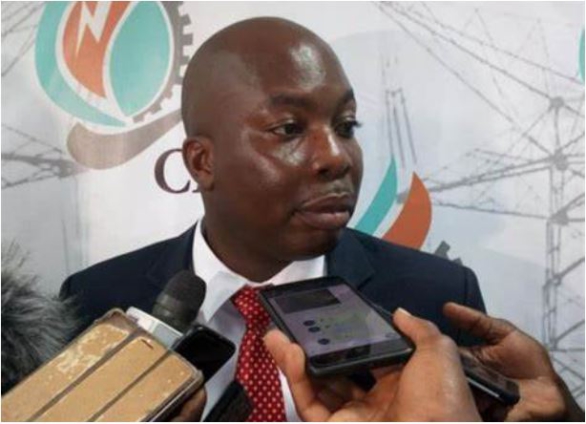The power sector is likely to experience an exacerbated debt of about $1.8 billion to the Independent Power Producers by 2024, the Chamber of Independent Power Generators has disclosed.
This prediction, it said, is based on the Public Utilities Regulatory Commission's decision to further reduce electricity tariffs by 6.56%, warning of inadequate supply of electricity to the national grid.
“The power sector is likely to experience an exacerbated debt of about $1.8 billion to the IPPs alone, by the end of the year 2024. This prediction is based on Public Utilities Regulatory Commission's (PURC) decision to further reduce electricity tariffs by 6.56% amidst escalating variable costs of electricity production such as fuel, maintenance, idle capacity charges, as a result of commissioned generation capacities coming on-grid and off-grid generations. Natural gas, for instance, sells currently at an average high price of 8.8 US Cents/mmscf, continuous depreciation of the Ghana cedi etc”.
Again, it mentioned in a statement that the generation tariffs are set as automatic upward adjustments necessitated by the increasing variable costs and other increased cost events.
Furthermore, it explained that the tariff reductions, while beneficial for consumers, have not been matched with a decrease in production costs, leading to significant financial deficits, adding, “The sector is plagued by inefficiencies, including high transmission and distribution losses, which exacerbate the financial challenges”.
“This situation mirrors the repercussions of similar tariff actions by the PURC in 2018 by 17.5% and 30% for both residential and non-residential customers, which significantly contributed to the financial gap faced by the Electricity Company of Ghana (ECG). Since then, ECG has never met the revenue requirement of the sector. This has placed an avoidable strain on the ECG’s sustainability, resulting in a cycle of financial insolvency, operational and governance deficiencies”, it alluded.
It continued that the core of ECG's financial woes lies in the imbalance between revenue generation and operational costs.
“Despite ECG’s commitment to a fixed $43 million monthly sum to IPPs, it continues to pile up about 70% of its monthly obligations to the Independent Power Producers alone. With this tariff reduction, the Government of Ghana renegotiation appeals to IPPs may hit the rock, as the risk of default on obligations going forward becomes high”, it concluded.
Latest Stories
-
Dr. Bernie Asher: The finished work of atonement
17 minutes -
Ghana Party in the Park to mark 20th anniversary with unforgettable celebrations
24 minutes -
State institutions that fail to sign performance contracts will be sanctioned – SIGA boss warns
36 minutes -
Photos: Dagbon Overlord pays courtesy call on Mahama
39 minutes -
When Nigeria becomes great, Africa will be great: A Pan-African perspective on the continent’s destiny
1 hour -
My gov’t will not sideline traditional rulers – Mahama
1 hour -
Anabel Rose takes over Open Mic with In Bloom Experience
1 hour -
Gifty Oware-Mensah used NSS allowance as collateral for GH₵30m loan from ADB – Ayine claims
2 hours -
Irate youth block Samereboi roads over arrest of illegal miners
2 hours -
Ghana’s urban population to grow 2.7% year-on-year over next 10 years
2 hours -
Vola Money launches Remittance-as-a- Service platform to support global money transfers
2 hours -
Asante Gold Chirano Limited awards 31 tertiary scholarships to brilliant but needy students
2 hours -
National FMCG Summit and Awards 2025 ignites future of consumer goods
3 hours -
AUCB and HAEC host innovative 2025 Capstone Projects
3 hours -
GCYE launches National Business Agenda to tackle youth and women’s economic exclusion
3 hours

